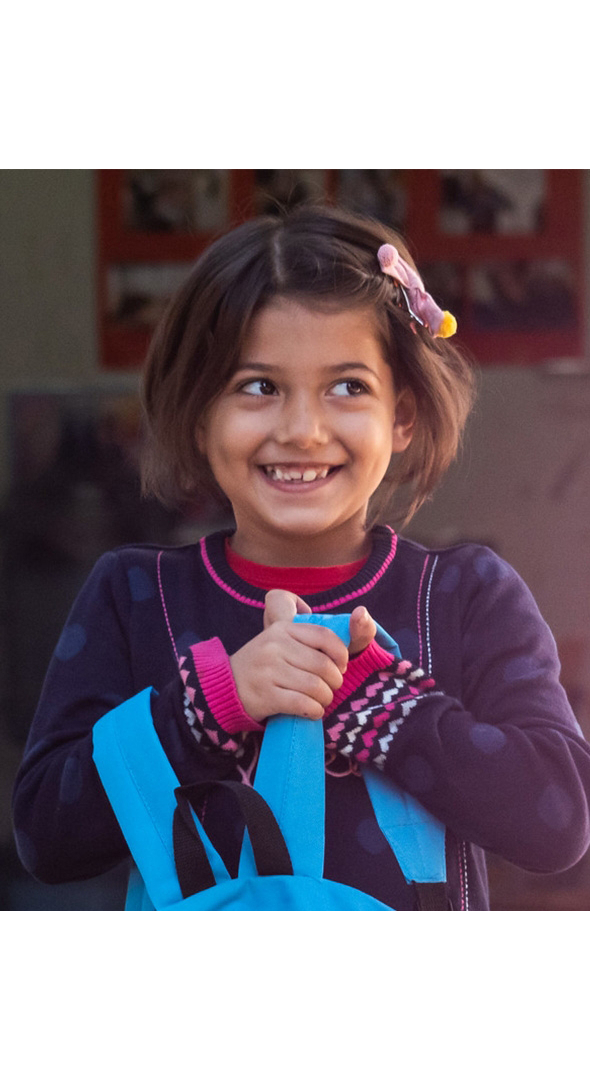UNICEF urgently responds to Haiti severe cholera outbreak
2010-10-26
ST. MARC, HAITI / Hong Kong (26 October 2010) -- UNICEF and its partners are working with urgency on the ground, responding to a recent outeak of cholera in Haiti’s rural-central region of Artibonite. There are fears the outeak could reach the heavily populated camps of earthquake survivors around Haiti’s capital of Port-au-Prince.
As of 25 October, the outeak has killed 259 people and sickened about 3,115 people. The disease was originated from a nearby contaminated river in Artibonite, along which an estimated 150,000 people live. 5 cases have been reported in Port au Prince but all are imported from Artibonite. Reported symptoms include severe and profuse diarrhoea, vomiting, and abdominal pains with death occurring at times within 1 or 2 hours within the occurring of symptoms. Children under the age of five are especially vulnerable to cholerabecause they get dehydrated more quickly, that is why it is so crucial to get them to hospitals rapidly and this has been a challenge. UNICEF’s response: 1) UNICEF has so far deployed a team of about 15 people and is working out the logistics to provide a dedicated field presence in communes affected by the outeak in Artibornite. 2) UNICEF teams are conducting assessments and advising on patient isolation and management of treatment as well as training of the local staff. Along with its partners, UNICEF’s water and sanitation teams have been coordinating assessments to develop action plans in chlorinating wells and intensifying hand washing with soap promotions. 3) UNICEF is working to support communities where the outeak has already taken hold, and is also providing vital supplies, such as soap, water disinfection tablets, and hygiene kits to help prevent the disease from spreading further. Distribution of supplies also includes information that will help communities apply best hygiene practices such as washing hands with soap before dealing with food and after using latrines. In addition to what had been prepositioned before the outeak, UNICEF has provided additional supplies to its partners. i) In Artibonite area, 2,500 adult hygiene kits, 50,000 water purification tablets, 2,500 collapsible jerry cans, 400,000 oral rehydration salts sachets have been provided to WASH partners. UNICEF has also prepositioned two diarrheal kits each of which are capable of treating 100 severe and 400 moderate cases of cholera to health partners. ii) In Port-au-Prince, UNICEF has provided 15 collapsible water tanks of 5,000 litres to the Spanish Red Cross, 500 kilos of granular chlorine for main water disinfection to DINEPA, 20,000 bars of soap, and 300,000 water purification tablets. DINEPA and sector partners are putting into place preparedness plans for Port-au-Prince which include large-scale chlorination of all water supplies and hygiene promotion. Challenges: i) Cholera is not endemic to Haiti, and this is the first time the disease has appeared on the island nation for over a century. This unfamiliarity with the disease has exacerbated the outeak with local affected populations unaware of the symptoms, not reaching hospitals in time, and health staff not set-up to efficiently cope with the crisis. ii) Sanitation coverage was only 17 per cent, and half the rural population practiced open defecation. Inadequate or inexistent of safe drinking water and sanitation facilities in Haiti even prior to the earthquake will exaggerate the rapid spread of disease.








